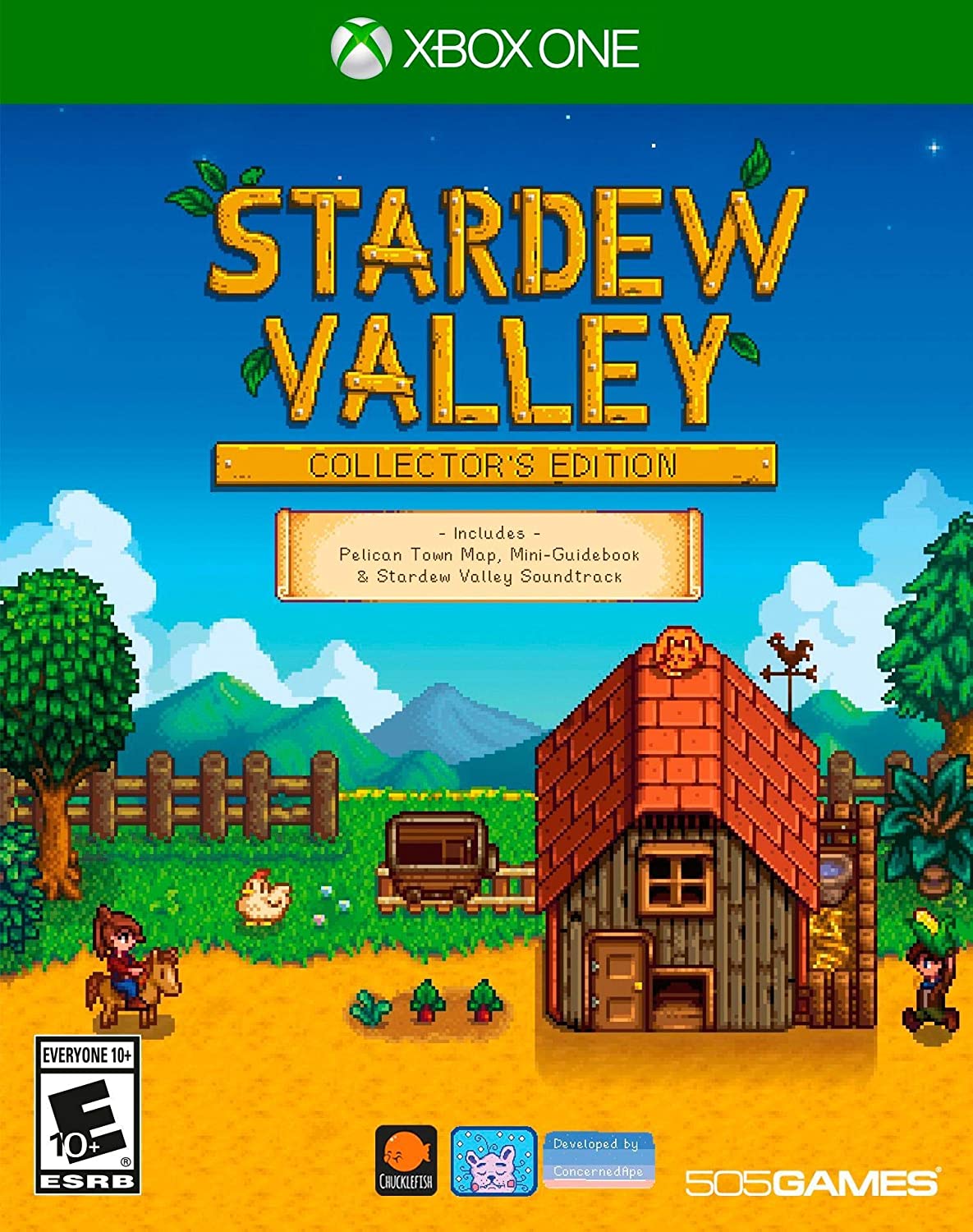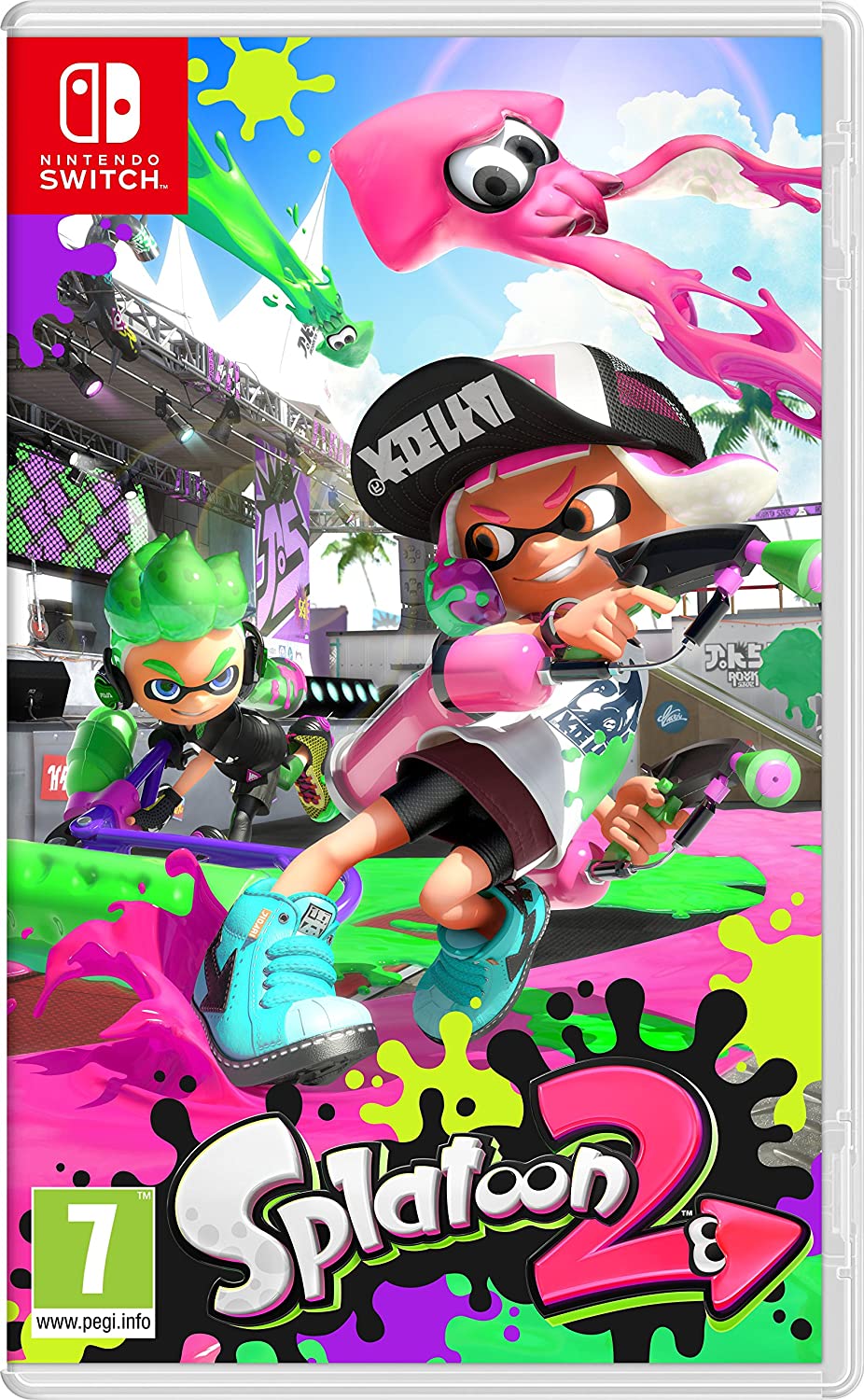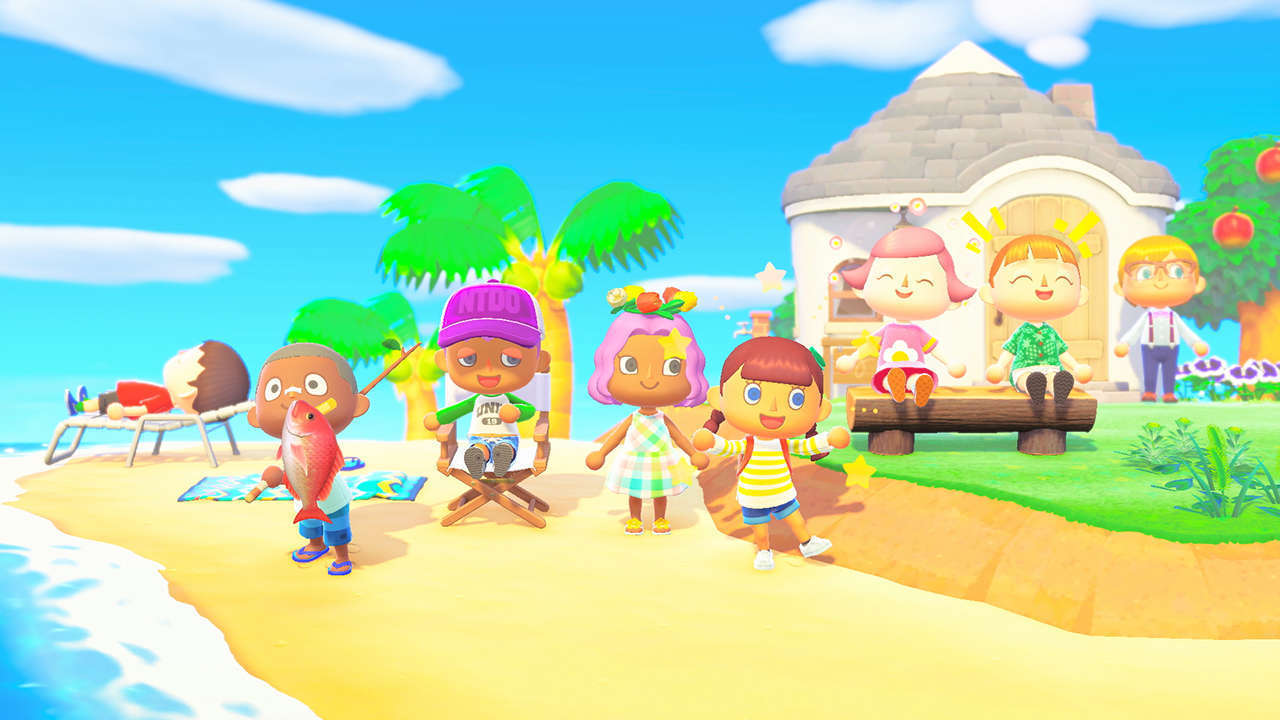What is it that defines a Super Mario game?
It’s a question I’ve been thinking about a lot as I’ve played through Super Mario Odyssey, which launches on the Nintendo Switch tomorrow. There are the core details, of course: Mario jumps, he collects coins, he stomps bad guys. At some point he’ll probably face off against an angry turtle named Bowser. But there’s something else at the heart of the series, something that has helped it live on for more than three decades across multiple platforms: an unyielding desire to surprise.
At their best, Super Mario games constantly confront you with new ideas, whether it’s a new place to explore or a new ability that changes the way you interact with the world around you. And Odyssey exemplifies this more than any game in the series before. It’s simply bursting with wild creativity. One minute you’re driving a tank down a rain-slicked city street, the next you’re dressed as a clown while trying to guide sheep across the desert. At one point you literally possess a giant slab of meat.
But through all of this strangeness — and Odyssey can get really weird — the game remains a constant delight to play.
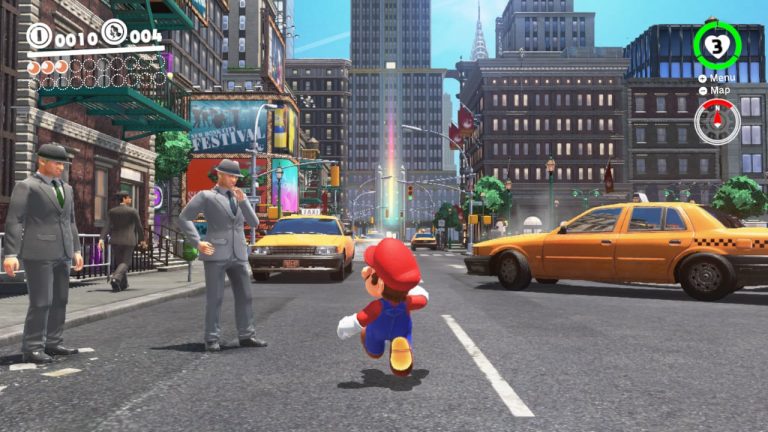
Odyssey is a 3D Mario in the mold of Super Mario 64, with a structure that consists of a series of large, discrete, and somewhat open worlds. There are two key elements that make it distinct from other Super Mario games in the series. One is a new character: Cappy, a sentient hat that allows Mario to possess objects and characters. It essentially replaces the power-up system from past games. Toss the hat on a Bullet Bill and you become an unstoppable rocket bursting through walls and enemies. Throw it on a frog and you can leap to even greater heights, while looking completely adorable. Many of the game’s puzzles are designed around figuring out how to utilize this strange array of abilities to get around.
In addition to Cappy, Odyssey also introduces a greater range of worlds to explore, places that fall far outside the typical Mushroom Kingdom the series is known for. Most are the kinds of places you wouldn’t necessarily expect Mario to be, from the New York-like cityscape of New Donk City, to a dark, crumbling castle that looks ripped right out of the gothic fantasy series Dark Souls. By adding these two aspects together — possession and new locations — the designers at Nintendo have been able to craft an experience that constantly introduces new concepts.
Like pretty much every Super Mario before it, the impetus of Odyssey is a tired damsel in distress narrative: Princess Peach has been captured by Bowser, and Mario needs to rescue her. Strangely, when you’re actually playing the game, it’s structured more like a globe-trotting vacation than a rescue mission. When you land in a new location — in Odyssey Mario pilots a flying craft that looks like a top hat — you’re given a fold-out map complete with key landmarks and interesting facts about the local culture. You’re encouraged to explore, and each area even has its own local currency, which you can use to buy souvenirs or a surprisingly huge array of outfits for Mario.
Nintendo has said that it utilized a Japanese gardening concept known as hakoniwa — or box garden — when it came to creating Odyssey’s worlds. Instead of vast, open spaces like in The Legend of Zelda: Breath of the Wild, the idea is that the levels in Odyssey are comparatively smaller, but packed with lots of tiny details you might not notice at first. This can make them especially fun to explore. Because each world is so different from the last, I found myself constantly discovering things I didn’t expect or hadn’t seen before.
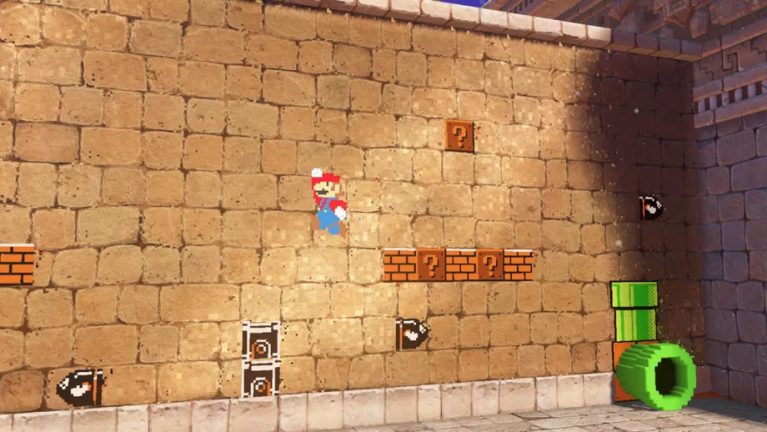
The core of the experience is still very much Super Mario. Odyssey is largely a platforming game. You’ll spend a good deal of time jumping around, figuring out how to navigate the world using Mario’s iconic skill. You still collect coins and, like in Mario 64, there are special items called “power moons” littered across each stage, which you’ll need to gather to open up new areas.
Compared to more recent 3D Super Mario adventures, like 3D World and the Galaxy sub-series, Odyssey’s environments are quite big, but haven’t lost much while scaling up. There are some large, fairly empty spaces to traverse — like expanses of desert or snowy fields — but they link together the tight, expertly crafted platforming sections you’d expect from the series. And there are still plentiful tiny, one-off areas hidden away. What Odyssey does, though, is make those familiar spaces feel like part of a larger whole, and then adds new elements on top. This world structure also makes the game a great fit for the Nintendo Switch, as you can explore huge parts of the world while lazing on the couch, or get in a quick challenge while on the go.
Each of these areas feels dramatically different from the last. There are the thematic differences, of course. It’s downright bizarre to see Mario alongside regular humans in New Donk City, while other worlds have art styles that feel ripped from different games and genres. The lunch-themed world, for instance, feels like an arty indie game, with low-poly visuals and eye-poppingly bright colors. Meanwhile, the wooded kingdom is like something out of a post-apocalyptic novel, with a village of autonomous robotic watering cans living in harmony with nature. Even the music can be jarringly different: one minute you’re listening to 8-bit-style chiptunes, the next there’s a blues guitar blaring in the background.
What binds these often disparate settings and moods together is the sense of surprise and discovery. Because they feel so distinct, you never quite know what to expect, and you’re constantly running up against brand-new concepts that feel in tune with the specific kingdom you’re in. In the snow kingdom you’ll need to toss your hat to clear away the piling snow, while in the city you can make your way up skyscrapers like Spider-Man. The creatures you can possess are especially different between worlds. There are woodpeckers that can climb by jamming their beaks into walls, octopi that can create streams of water to fly like a jetpack, and Easter Island-style statues with the ability to see hidden pathways by putting on sunglasses.
Each of these discoveries will make you see the world in a slightly different way, uncovering new methods of getting about. There are so many of these moments, and they can be so delightfully surprising, that I’m hesitant to share them all. While past entries in the series could get wild, this might be the first Super Mario game where you should actually avoid spoilers. For all of its newness, Odyssey is also a game filled with nostalgia. You’ll encounter familiar characters from past games, some that haven’t been seen for some time, and there are moments when Mario transforms back into his 8-bit self for dazzling, but brief, side-scrolling vignettes.
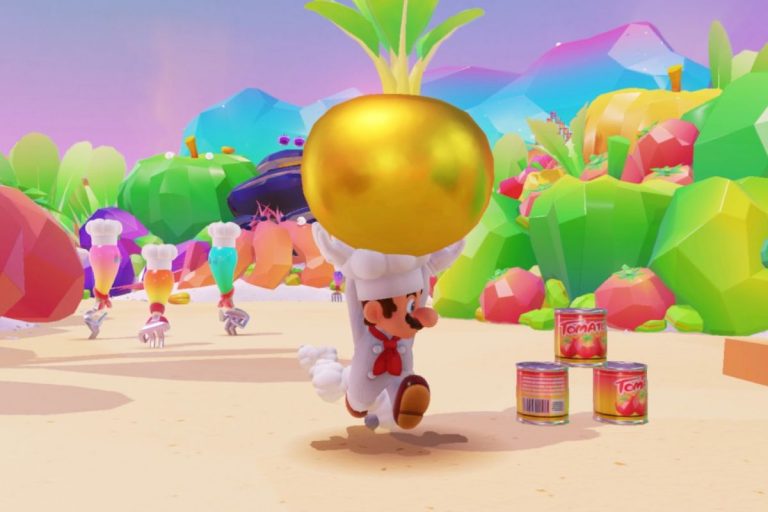
Super Mario Odyssey is very fun, and it’s also very approachable. Odyssey is an incredibly forgiving game; there are no lives, so if you die you simply lose a few coins, which are already plentiful. A few tricky boss battles aside, getting through the main campaign (which took me a little over 20 hours) isn’t especially difficult if you’ve played a 3D Super Mario before. That’s not to say the game isn’t challenging, but most of the really difficult segments are relegated to optional side quests. Essentially, you can choose your own difficulty by playing whatever bits of the game feel most comfortable to you. I love to scour perilous locations for hidden items; my four-year-old simply wants to toss Cappy on a fish and swim around the game’s crystal clear lakes.
It’s a testament to the sheer creativity underlying Odyssey that, even after watching the credits roll and playing for more than 24 hours, I still regularly come across things I haven’t seen before. (The game opens up significantly after you complete the story.) There are coins and moons to collect and tucked-away nooks to discover. There are many moments in Odyssey where it doesn’t necessarily look like a Mario game, but more like the squat plumber has been transported into some other virtual realm. But it always feels like Mario — because it never stops surprising you.
This article has been taken from Here.



